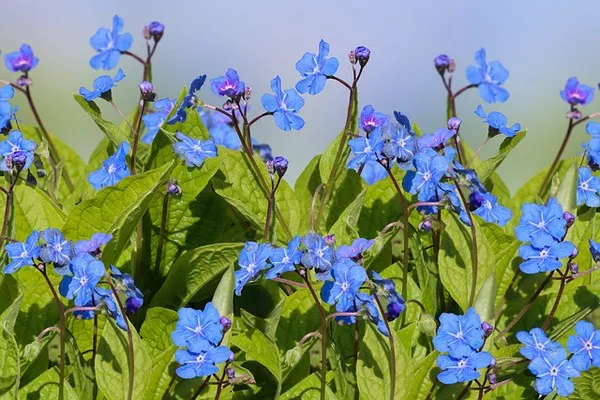Gardening is a fulfilling hobby for many, allowing individuals to nurture and care for plants, encouraging their growth and overall well-being. To achieve the best results, gardeners often turn to various natural remedies and soil amendments, such as eggshells. Eggshells are rich in calcium and other minerals, making them a seemingly ideal choice for many gardeners. However, it might come as a surprise that not all plants are thrilled with the idea of eggshells in their vicinity. In this article, we will explore what plants don’t like about eggshells and when and how they should be used cautiously or avoided altogether.
The Benefits of Eggshells in Gardening
Eggshells have been a popular choice in gardening for various reasons. They are a valuable source of calcium, which is essential for plant growth. Calcium plays a pivotal role in the development of strong cell walls in plants, ensuring better disease resistance and overall plant structure. Additionally, eggshells also contain trace amounts of magnesium, potassium, and other minerals that can benefit the soil’s overall health.
Eggshells can serve several purposes in the garden:
Fertilizer: When crushed into small pieces, eggshells can be used as a slow-release calcium source for calcium-hungry plants, such as tomatoes, peppers, and squash. The gradual breakdown of eggshells provides a consistent supply of calcium to the soil.
Pest Deterrent: Some gardeners use crushed eggshells to create barriers around plants, deterring soft-bodied pests like slugs and snails. The sharp edges of the crushed shells can discourage these pests from crossing the barrier.
Seedlings Starter Pots: Eggshells can be used as biodegradable seedling starter pots. Once the seedlings are ready for transplanting, the entire shell can be planted in the garden, reducing transplant shock.
However, despite these advantages, there are instances where eggshells may not be the best choice for your plants.
What Plants Don’t Like About Eggshells
Slow Decomposition:
While eggshells are indeed a valuable source of calcium, one of their drawbacks is the slow decomposition process. In their natural form, eggshells can take months or even years to break down fully in the soil. This can be problematic for plants with immediate calcium needs or for gardeners who want to see quicker results. For instance, fast-growing vegetables like lettuce and radishes may not benefit from eggshells due to their slow decomposition rate.
Alkaline pH:
Another issue that some plants have with eggshells is their ability to raise the soil’s pH. Eggshells are alkaline, which means that when they break down, they can increase the soil’s pH level. Most plants prefer a slightly acidic to neutral pH range, typically between 6.0 and 7.0. Soil that becomes too alkaline may hinder the availability of essential nutrients like iron, manganese, and phosphorus, causing nutrient deficiencies in some plants.
Incompatibility with Acid-Loving Plants
Plants that thrive in acidic soils, such as blueberries, azaleas, and rhododendrons, do not appreciate the presence of eggshells in their environment. These acid-loving plants require a low pH level (4.5 to 5.5), and the alkaline nature of eggshells can disrupt the soil’s pH balance, making it unsuitable for their growth.
Potential for Contamination:
Eggshells have the potential to introduce contaminants to your garden if not prepared properly. It’s important to clean and sanitize eggshells before using them in your garden. Otherwise, they may harbor harmful bacteria like Salmonella, which could spread to your plants and pose a risk to human health.
Limited Pest Deterrent:
While crushed eggshells can act as a physical barrier to some pests like slugs and snails, their effectiveness may be limited. Determined pests can still navigate around or over the shells, and many other effective pest control methods are available.
When and How to Use Eggshells Cautiously
Despite the limitations and potential drawbacks of using eggshells in your garden, there are ways to use them cautiously and effectively.
Crushed Eggshells:
Crush eggshells into small pieces to promote faster decomposition. By breaking them into smaller fragments, you can expedite the release of calcium and reduce the risk of raising the soil’s pH too quickly. Mixing crushed eggshells with compost or well-rotted organic matter can help offset the alkaline effect and create a more balanced environment for your plants.
Apply to Calcium-Hungry Plants:
While not all plants benefit from eggshells, those with high calcium requirements, such as tomatoes, peppers, and squash, can still gain from their use. Incorporate crushed eggshells into the planting hole when transplanting these calcium-loving plants, ensuring they have a steady source of this vital nutrient.
Test Soil pH:
Regularly test your soil’s pH to monitor any potential changes caused by eggshells or other soil amendments. Adjust the pH as needed to maintain an optimal growing environment for your specific plants. For acid-loving plants, avoid using eggshells altogether, and consider alternative methods to supply them with essential nutrients.
Sanitize Eggshells:
Before using eggshells in your garden, ensure they are cleaned and sanitized to eliminate any potential contaminants. Boiling the eggshells for a few minutes or baking them in the oven at a low temperature (200°F) can help sterilize them, making them safe for your garden.
Conclusion
Eggshells can be a valuable addition to your gardening toolkit, provided they are used with a clear understanding of their benefits and limitations. While some plants may not appreciate the slow decomposition, alkaline nature, or potential contaminants associated with eggshells, others can greatly benefit from the calcium and minerals they offer. By using eggshells cautiously, crushing them for faster breakdown, and monitoring soil pH, you can strike a balance that promotes healthy plant growth without the drawbacks. Remember that every garden is unique, and what works well for one plant may not be suitable for another, so it’s essential to tailor your approach to your specific gardening needs.


